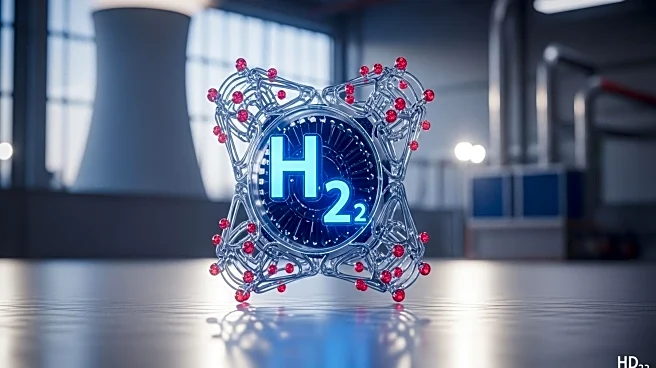What's Happening?
Japanese utility giant JERA and automotive technology firm DENSO have initiated Japan's first demonstration of hydrogen production using solid oxide electrolysis cell (SOEC) systems at JERA's Shin-Nagoya Thermal Power Station. The project aims to achieve high electrolysis efficiency by applying DENSO's heat-management technology to minimize heat discharge. This marks Japan's first attempt to integrate hydrogen production within thermal power infrastructure, as utilities seek new revenue streams while advancing decarbonization goals. The SOEC system operates at high temperatures, leveraging thermal energy to boost electrical efficiency.
Why It's Important?
The demonstration represents a significant step towards Japan's goal of achieving net-zero CO2 emissions by 2050. By integrating hydrogen production into existing thermal power infrastructure, JERA and DENSO are pioneering efforts to decarbonize energy production. This initiative could lead to new business opportunities in the hydrogen sector, positioning Japan as a leader in clean energy technology. The project also aligns with global efforts to reduce carbon emissions and transition to sustainable energy sources, potentially influencing energy policies worldwide.
What's Next?
Based on the demonstration results, JERA plans to scale up the electrolysis power from 200 kW to several thousand kW, accelerating efforts to apply SOEC systems for next-generation fuel production. The company is also building an end-to-end hydrogen and ammonia supply chain, converting existing thermal units to zero-emissions fuels. JERA's collaboration with ExxonMobil on a low-carbon hydrogen and ammonia complex in the U.S. Gulf Coast further underscores its commitment to global decarbonization efforts.










